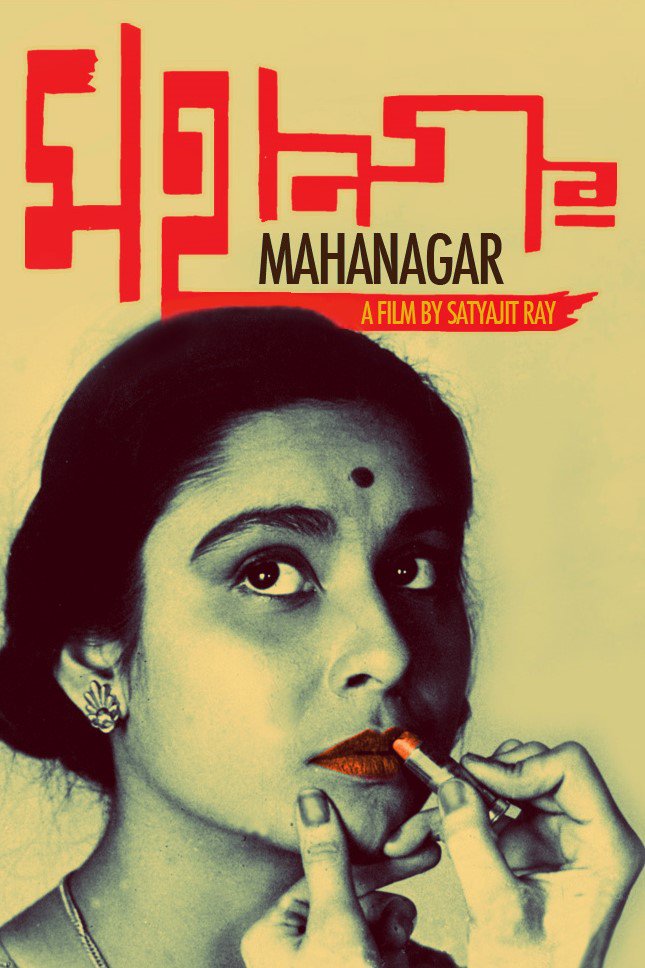The Big City (1963)
dir. Satyajit Ray

Our eyes just see another shade of gray, but our imagination sees lips redder than rosy-fingered dawn: red enough to shame Arati's family and imply a burgeoning sexuality; red enough to emasculate her husband, to casually strike the match of modernity and set their tiny apartment on fire; red enough for Edith's mirror. Everything is brighter under the relentless Bengali sun. There will always be a blacker black, Anish Kapoor, so don't waste your money or your lawyers on it; your intellectual property could never match the void behind our eyelids, the canyons between the stars, the infinity beneath the event horizon. Technicolor is a poor substitute for a dream. Film is about possibility, not reality.
The Twentieth Century will eat this family alive if Arati doesn’t learn to knock on doors—if she doesn’t wear a pan-Indian sari and tote a purse on her arm. Through chic sunglasses, she sees Kolkata for the first time. How much does your masculinity cost, Subrata? Would one hundred rupees do it? How about a fifty-rupee raise for efficient work? If you think a riot is rough, try demanding a bonus with bangles clattering on your wrists and a braid swaying in your hair—that's a real challenge. Edith learns a little Bengali, and Arati learns the art of persuasion. Their freedom combines and multiplies: the freedom to walk alone in the road, and to pay your rent without worry; the freedom to speak frankly over coffee, and to meet with a man who hasn’t sworn a vow to you; the freedom to add your small, quivering voice to the great feminine din of commerce.
That curmudgeon Priyogopal is right, of course, that "the Almighty's accounts are out of balance somewhere." But he's looking at the wrong ledger. Modernity teaches Subrata an ancient lesson: dignity and an empty sack is worth the sack. That is, if "dignity" means pretending to uphold tradition inside a cheap Kolkata tenement; if "dignity" means your little sister begging to drop out of school; if "dignity" means spying on your wife during an unemployed panic. Two worlds collide like protons in an accelerator, and the resulting splash reveals hidden components: insecurity, oppression, faith, purpose, humility. To cynically ask your wife for money, then shame your daughter-in-law for daring to work—that, old man, is life in the Big City. Pray at the gravestone of history all you want.
Would I recognize you at home, Arati? "Wife" is metonymy: Arati is the scrubbing cloth, the serving bowl, the screeching tea kettle. Even enlightened masculinity cannot stand the threat of impotence. Still, Subrata persists—Priyogopal persists—all of Bengal persists—and they grow together to fit the size of their containers. And unbounded, without a container—without limits—then we become endless. Then "dignity" will mean something. I realize now that I saw you all along, Arati. I never lost you, Subrata: I only lost your cigarette; I only lost your salary. Here we are, finally seeing each other. Here I am, wearing my first pair of spectacles—the gift of clarity. A proper settlement of accounts. Here we are in Kolkata. Here we are.